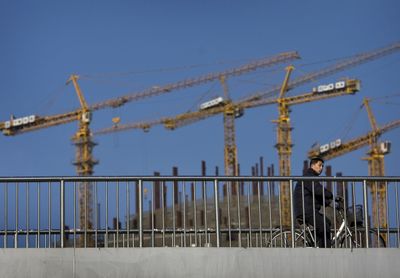China passes Germany as third-largest economy

BEIJING – China leapfrogged over Germany to become the world’s third-largest economy in 2007, sooner than predicted, underscoring how quickly the concentration of global economic power has shifted.
Although earlier estimates had put growth of China’s gross domestic product that year at 11.9 percent, revised figures released Wednesday by the government statistics bureau show that its economy actually expanded by 13 percent to $3.38 trillion. That compares with Germany’s 2007 GDP of $3.32 trillion.
“It was inevitable,” said Ting Lu, a Merrill Lynch economist based in Hong Kong.
Whether the growth trajectory will continue, however, has been complicated by the global recession, which has already prompted massive layoffs and waves of company closures, especially across southeastern China, the heartland of its export-driven economy. If China were to continue to grow at its current rate, economists say it could surpass Japan in as soon as three years and the United States in 18 years to become the world’s No. 1 economy.
In 2007, the United States remained the world’s largest economy with a GDP of $13.8 trillion and Japan the second-largest with a $4.38 trillion GDP, according to calculations based on an annual average of daily exchange rates by Merrill Lynch.
China is one of the few major economies that is on track to have positive GDP growth this year. Merrill Lynch, for example, calculates that China will have a GDP growth of 8 percent as compared with declines of 2.8 percent for the United States, 1.3 percent for Japan and 0.6 percent for the European Union.
“In 2007, the gap between the growth rates of China and other big countries was huge. Actually in 2009 the gap between will be even bigger,” Merrill Lynch’s Lu said.
But even if China achieves a projected 8 percent rate of growth this year, that might be insufficient to stop the wave of company bankruptcies and layoffs that have alarmed China’s leaders. Economic data released earlier this week only added to the pessimism: Exports dropped 2.8 percent in December from the same month a year ago, the sharpest decline in a decade.